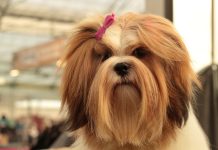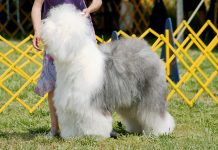History and Origins of the Poodle Breed

The Poodle is a distinguished and versatile breed with a fascinating history that dates back centuries. Here’s an overview of the history and origins of the Poodle:
- Ancient Roots: The Poodle’s ancestors can be traced back to ancient times, with origins likely in Germany or France. They were initially bred as water retrievers, particularly skilled in retrieving waterfowl for hunters.
- German Origins: The name “Poodle” is believed to have come from the German word “Pudel,” which means “to splash in water.” This reflects the breed’s early role as a water dog used for hunting and retrieving game from lakes and rivers.
- Versatile Working Dogs: Poodles were highly valued for their intelligence, trainability, and swimming abilities. They were popular among European nobility and royalty as hunting companions.
- Variety of Sizes: The Poodle comes in three recognized sizes: Standard, Miniature, and Toy. Each size served different purposes, with the Standard Poodle primarily used for hunting, the Miniature Poodle as a companion, and the Toy Poodle as a decorative companion.
- Popularity as Show Dogs: Poodles gained popularity as show dogs in the 19th century due to their elegant appearance and graceful movement. They quickly became a favorite among dog enthusiasts and remain one of the most popular breeds today.
Physical Characteristics and Appearance of Poodles
Poodles are known for their distinctive appearance and elegant demeanor. Here are the key physical characteristics of the breed:
- Coat: Poodles have a dense, curly or corded coat that is non-shedding and hypoallergenic, making them a popular choice for allergy sufferers. Their coat can be groomed into various styles, including the iconic “pom-poms” on their joints and tail.
- Size Variations: Poodles come in three size varieties:
- Standard Poodle: Height over 15 inches (38 cm) at the shoulder.
- Miniature Poodle: Height between 10 to 15 inches (25 to 38 cm) at the shoulder.
- Toy Poodle: Height under 10 inches (25 cm) at the shoulder.
- Head: Poodles have a long, straight muzzle with dark, oval-shaped eyes that convey intelligence and alertness. The ears are long and hang close to the head.
- Body: The body is squarely built, with a deep chest and a level back. Poodles have a distinctive elegant gait and carry themselves proudly.
- Tail: The tail is set high and carried gracefully, often docked in some countries for traditional purposes.
- Colors: Poodles come in a wide range of solid colors including black, white, silver, gray, apricot, cream, brown, and blue. They can also have multi-colored or parti-colored coats.
- Temperament: Poodles are highly intelligent, trainable, and alert. They are known for their friendly and active nature, making them excellent companions for families and individuals alike.
- Athleticism: Despite their elegant appearance, Poodles are athletic dogs with great stamina. They enjoy a variety of activities including obedience, agility, and water sports.
Overall, Poodles are a breed cherished for their intelligence, elegance, and versatility. Whether as a show dog, hunting companion, or beloved family pet, the Poodle continues to captivate hearts with its unique charm and remarkable abilities.
Poodle Temperament and Personality Traits
Poodles are renowned for their intelligence, elegance, and friendly demeanor. Understanding their temperament and personality traits is essential for providing them with appropriate care and training:
- Intelligent: Poodles are one of the most intelligent dog breeds, ranking high in canine IQ. They are quick learners and excel in obedience training and various canine sports.
- Energetic: Despite their regal appearance, Poodles are energetic dogs that require regular exercise and mental stimulation. They enjoy activities like fetching, swimming, and agility training.
- Friendly: Poodles are typically friendly and sociable dogs. They are affectionate towards their families and usually get along well with children and other pets when properly socialized.
- Alert and Watchful: Poodles have a keen sense of awareness and make excellent watchdogs. They will alert their owners to the presence of strangers but are not typically aggressive.
- Playful: Poodles have a playful nature and enjoy interactive games and activities. They retain their puppy-like enthusiasm well into adulthood.
- Adaptable: Poodles are adaptable dogs that can thrive in various living situations, whether it’s a suburban home or city apartment, as long as they receive sufficient exercise and mental stimulation.
- Sensitive: Poodles are sensitive dogs that respond well to positive reinforcement training methods. Harsh training techniques can cause them to become withdrawn or anxious.
- Loyal: Poodles form strong bonds with their families and are known for their loyalty. They thrive on companionship and may develop separation anxiety if left alone for long periods.
Training and Socialization Needs for Poodles
Proper training and socialization are key to raising a well-behaved and well-adjusted Poodle. Here’s what you need to know about training and socializing your Poodle:
- Early Training: Start training your Poodle puppy as soon as you bring them home. Poodles are eager to please and respond well to positive reinforcement techniques such as praise, treats, and play.
- Obedience Training: Enroll your Poodle in puppy kindergarten classes and continue with basic obedience training. Poodles excel in activities like obedience trials, agility, and rally.
- Socialization: Expose your Poodle to a variety of people, pets, environments, and experiences from an early age. Proper socialization helps prevent shyness or fearfulness towards new situations.
- Exercise Requirements: Poodles are active dogs that need daily exercise to stay physically and mentally healthy. Aim for at least 30-60 minutes of exercise per day, which can include walks, playtime, and interactive games.
- Mental Stimulation: Keep your Poodle’s mind engaged with puzzle toys, interactive games, and training sessions. Mental stimulation is important for preventing boredom and destructive behaviors.
- Consistency and Patience: Poodles thrive in a structured environment with consistent rules and routines. Be patient and persistent in training, as Poodles can be sensitive to changes in their environment.
- Positive Reinforcement: Use positive reinforcement techniques to motivate and reward desired behaviors. Avoid punishment-based methods, as they can undermine the trust and confidence of your Poodle.
- Grooming and Handling: Regular grooming sessions are essential for Poodles to maintain their coat health and prevent mats. Introduce grooming and handling routines early to make them comfortable with grooming activities.
By providing proper training, socialization, and care, Poodles can develop into well-mannered, confident, and happy companions. They thrive on mental stimulation and quality time with their families, making them an excellent choice for dog owners looking for an intelligent and devoted companion.
Health Considerations and Common Issues in Poodles
Poodles are generally healthy dogs, but like all breeds, they are prone to certain health issues. Being aware of these common conditions can help you provide the best care for your Poodle:
- Hip Dysplasia: This is a genetic condition where the hip joint doesn’t develop properly, leading to joint instability and arthritis. Regular exercise and maintaining a healthy weight can help reduce the risk.
- Progressive Retinal Atrophy (PRA): PRA is a degenerative eye disorder that can eventually lead to blindness. Responsible breeders perform eye screenings to reduce the risk of passing on this condition.
- Luxating Patella: This is a condition where the kneecap dislocates or moves out of its normal position. It can cause lameness and discomfort and may require surgical correction.
- Epilepsy: Some Poodles may develop epilepsy, a neurological disorder characterized by seizures. Medication can often help manage seizures in affected dogs.
- Addison’s Disease: This is a hormonal disorder where the adrenal glands don’t produce enough hormones. Symptoms include weakness, lethargy, and vomiting. It can be managed with medication.
- Gastric Dilatation-Volvulus (GDV): Also known as bloat, GDV is a life-threatening condition where the stomach twists and fills with gas. Immediate veterinary attention is required to save the dog’s life.
- Hypothyroidism: Poodles can develop hypothyroidism, where the thyroid gland doesn’t produce enough hormones. This can lead to weight gain, lethargy, and skin problems.
- Allergies: Poodles may be prone to skin allergies and sensitivities, which can cause itching and discomfort. Identifying and avoiding allergens can help manage this condition.
Regular veterinary check-ups, maintaining a healthy diet, providing regular exercise, and being vigilant for any signs of health problems are important for keeping your Poodle healthy and happy.
Living with a Poodle: Suitable Environments and Lifestyle Considerations

Poodles are adaptable dogs that can thrive in various living situations, but there are specific considerations for providing them with a suitable environment and lifestyle:
- Indoor Living: Poodles are indoor dogs and should not be kept exclusively outdoors. They enjoy being part of the family and should have access to indoor spaces where they can interact with their owners.
- Exercise Needs: Poodles are energetic dogs that require regular exercise to stay healthy and prevent boredom. Aim for at least 30-60 minutes of daily exercise, which can include walks, playtime, and interactive games.
- Grooming Requirements: Poodles have a unique coat that requires regular grooming to prevent mats and tangles. Plan for regular brushing, professional grooming, and coat maintenance to keep your Poodle looking their best.
- Social Interaction: Poodles are social dogs that thrive on companionship and interaction with their families. They may develop separation anxiety if left alone for long periods, so provide them with companionship and mental stimulation.
- Training and Mental Stimulation: Poodles are intelligent dogs that enjoy training sessions and mental challenges. Engage their minds with obedience training, interactive toys, and puzzle games to keep them mentally stimulated.
- Healthcare: Stay vigilant about your Poodle’s health by scheduling regular veterinary check-ups, maintaining vaccinations, and addressing any health concerns promptly.
- Family Environment: Poodles make excellent family pets and are generally good with children and other pets when properly socialized. Supervise interactions with young children to ensure everyone’s safety.
- Safety Precautions: Poodles are curious dogs and may be prone to exploring. Ensure your home and yard are secure to prevent escapes or accidents.
By providing a loving home, regular exercise, proper grooming, and attentive healthcare, you can create a happy and fulfilling life for your Poodle companion. They are loyal, intelligent, and adaptable dogs that thrive in environments where they receive love, attention, and mental stimulation.
Poodle Variations and Breeding Practices
Poodles are known for their distinct coat types and sizes, which contribute to their versatility and popularity. Here are the variations and types of Poodles:
- Coat Types:
- Curly Coat (or “Poodle” coat): The classic curly coat is dense and tightly curled, forming the characteristic Poodle appearance. This coat type is considered hypoallergenic and requires regular grooming to prevent matting.
- Corded Coat: Some Poodles are groomed to have a corded coat, where the hair naturally forms into cords or ropes. This unique grooming style requires special care and maintenance.
- Sizes:
- Standard Poodle: The largest size, standing over 15 inches at the shoulder. Standard Poodles were originally bred as water retrievers and hunting dogs.
- Miniature Poodle: Medium-sized Poodles, typically standing between 10 to 15 inches at the shoulder. Miniature Poodles were often used as truffle hunters and companions.
- Toy Poodle: The smallest size, standing under 10 inches at the shoulder. Toy Poodles were bred as companions and were popular among European royalty.
- Colors:
- Poodles come in a wide range of solid colors, including black, white, brown, apricot, gray, silver, blue, and cream.
- They can also have parti-color (two or more solid colors) or phantom (distinct markings on specific body parts) coat patterns.
Breeding Practices for Poodles
Responsible breeding practices are essential for maintaining the health, temperament, and breed standards of Poodles. Here are key considerations in Poodle breeding:
- Health Screening: Ethical breeders conduct health screenings on breeding dogs to identify and eliminate genetic health issues. Common screenings include hip evaluations, eye exams, and genetic tests for inheritable diseases.
- Temperament Assessment: Breeders prioritize breeding dogs with stable and predictable temperaments. Poodles should be intelligent, trainable, and have a friendly disposition.
- Adherence to Breed Standards: Poodles have specific breed standards outlined by kennel clubs like the American Kennel Club (AKC). These standards specify characteristics such as size, coat type, color, and overall appearance. Responsible breeders strive to produce Poodles that meet these standards.
- Avoiding Genetic Defects: Ethical breeders aim to reduce the risk of genetic defects and hereditary diseases by selecting breeding pairs carefully. They avoid breeding dogs with known health issues or undesirable traits.
- Socialization and Early Handling: Puppies should be well-socialized and exposed to various stimuli from an early age. This helps puppies develop into well-adjusted adults with good behavior and adaptability.
- Ethical Placement of Puppies: Responsible breeders carefully screen potential owners and provide support and guidance throughout the puppy’s life. They prioritize the well-being of their puppies and ensure they go to loving and suitable homes.
- Continued Education and Improvement: Ethical breeders are committed to ongoing education and improvement. They stay updated on the latest research and advancements in dog breeding and prioritize the welfare of the breed above all else.
By following responsible breeding practices, breeders contribute to the health, longevity, and overall well-being of the Poodle breed. Potential Poodle owners should seek out reputable breeders who prioritize health, temperament, and adherence to breed standards.
50 Best Names with Meanings for Poodles
Naming your Poodle is a fun and exciting part of bringing a new companion into your life. Here’s a list of 50 great names with meanings that can suit Poodles of all sizes and colors:
- Apollo – Greek god of music and poetry, symbolizing creativity and intelligence.
- Luna – Latin for “moon,” representing elegance and beauty.
- Cleo – Short for Cleopatra, meaning “glory of the father.”
- Finn – Irish name meaning “fair” or “white,” perfect for a white Poodle.
- Zara – Arabic name meaning “princess,” ideal for a regal Poodle.
- Bella – Italian for “beautiful,” suitable for a stunning Poodle.
- Max – Short for Maximilian, meaning “greatest.”
- Athena – Greek goddess of wisdom and warfare, symbolizing strength and intelligence.
- Dexter – Latin for “skillful” or “dexterous,” reflecting agility and intelligence.
- Stella – Latin for “star,” perfect for a Poodle that shines bright.
- Leo – Latin for “lion,” representing strength and courage.
- Ruby – A gemstone name associated with passion and vitality.
- Milo – Of German origin, meaning “mild” or “peaceful.”
- Willow – A graceful and elegant name, symbolizing flexibility and strength.
- Coco – Short for cocoa, a sweet and delightful name.
- Rocco – Italian name meaning “rest,” suitable for a calm and composed Poodle.
- Ivy – A symbol of fidelity and eternity, representing loyalty.
- Jasper – A gemstone name meaning “treasurer,” ideal for a precious Poodle.
- Zephyr – Greek name for the west wind, suggesting a gentle and mild temperament.
- Gigi – A charming and playful name, perfect for a lively Poodle.
- Mila – Slavic name meaning “gracious” or “dear.”
- Oscar – Derived from Old English, meaning “divine spear.”
- Phoebe – Greek name meaning “bright” or “shining,” ideal for a radiant Poodle.
- Harley – A spirited and adventurous name, perfect for an active Poodle.
- Nico – Greek name meaning “victory of the people.”
- Mocha – A rich and delightful name inspired by the coffee.
- Remy – French name meaning “oarsman” or “remedy.”
- Lola – Spanish name meaning “sorrows” or “lady of sorrows.”
- Felix – Latin name meaning “happy” or “fortunate.”
- Piper – A musical and lively name, perfect for an energetic Poodle.
- Nova – Latin name meaning “new,” ideal for a fresh start with your Poodle.
- Oliver – Derived from Old French, meaning “olive tree,” symbolizing peace and abundance.
- Misty – A soft and ethereal name, representing mystery and grace.
- Teddy – A cute and cuddly name, perfect for a lovable Poodle.
- Violet – A flower name symbolizing modesty and simplicity.
- Casper – Derived from Persian, meaning “treasurer” or “keeper of the treasure.”
- Sophie – Greek name meaning “wisdom,” ideal for an intelligent Poodle.
- Charlie – A friendly and approachable name, suitable for a sociable Poodle.
- Sasha – Russian name meaning “defender of mankind.”
- Rosie – A sweet and cheerful name, perfect for a joyful Poodle.
- Finnegan – Irish name meaning “fair” or “white.”
- Pixie – A playful and whimsical name, reflecting a lively personality.
- Hunter – A strong and courageous name, ideal for a Poodle with hunting roots.
- Juno – Roman goddess of marriage and childbirth, symbolizing protection.
- Gizmo – A quirky and fun name, perfect for a unique Poodle.
- Mabel – Old English name meaning “lovable” or “dear.”
- Winston – Old English name meaning “joy stone” or “pleasant town.”
- Loki – Norse god of mischief, ideal for a playful and mischievous Poodle.
- Poppy – A vibrant and cheerful name, symbolizing remembrance and beauty.
- Romeo – A romantic and passionate name, suitable for an affectionate Poodle.
Choose a name that resonates with your Poodle’s personality, appearance, and the qualities you admire. Whether you prefer a classic, elegant name or a playful, whimsical name, there’s a perfect fit waiting for your beloved Poodle companion.

In conclusion, this comprehensive guide to Poodle dogs has provided a detailed overview of this elegant and intelligent breed. Throughout our exploration, we’ve delved into the history, distinctive characteristics, and essential care considerations that define Poodles. Known for their hypoallergenic coat, high intelligence, and friendly disposition, Poodles make exceptional companions for families and individuals alike. They excel in various activities, including obedience, agility, and therapy work, showcasing their versatility and adaptability. As you embark on your journey with a Poodle, may you appreciate their unique qualities and form a strong bond with this delightful breed, creating lasting happiness and companionship together.



























